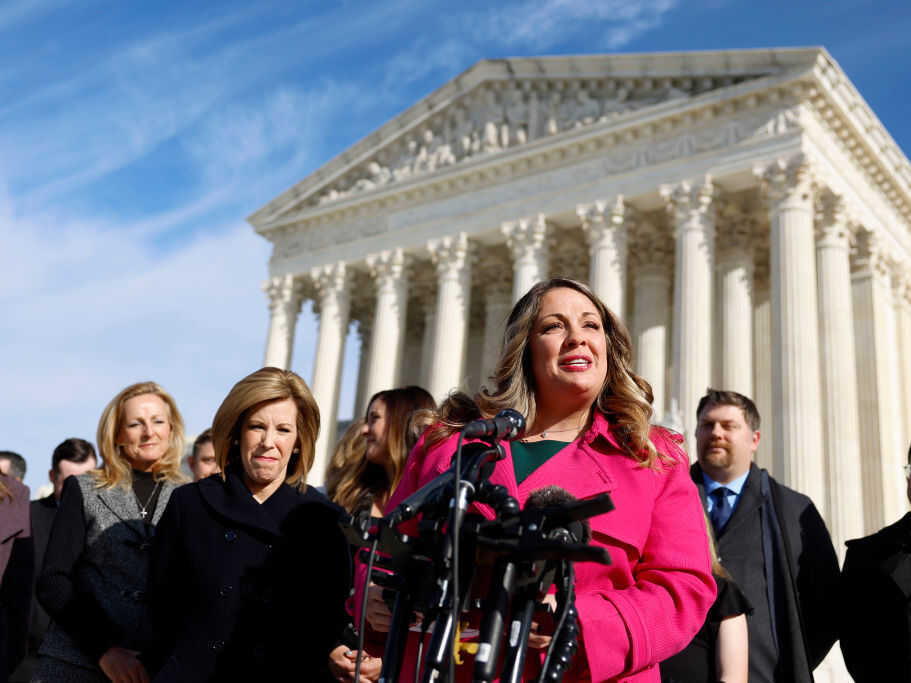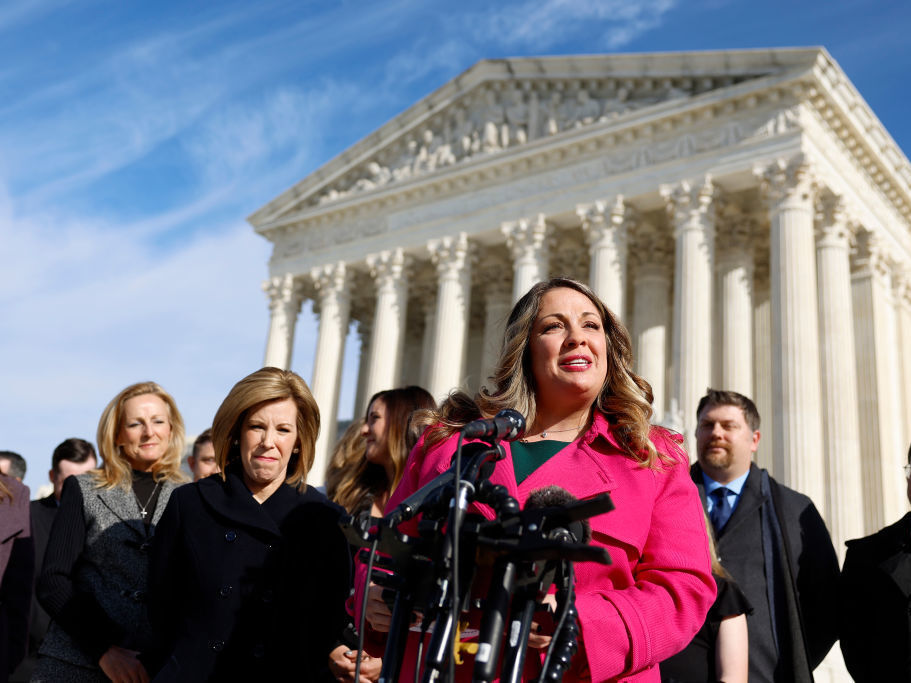
Lorie Smith, the proprietor of 303 Resourceful, a website style and design business in Colorado, speaks Monday to reporters outside the house of the U.S. Supreme Courtroom in Washington.
Anna Moneymaker/Getty Illustrations or photos
conceal caption
toggle caption
Anna Moneymaker/Getty Images

Lorie Smith, the operator of 303 Artistic, a site design corporation in Colorado, speaks Monday to reporters outdoors of the U.S. Supreme Courtroom in Washington.
Anna Moneymaker/Getty Photos
The U.S. Supreme Court read far more than two several hours of arguments Monday in a constitutional exam of point out general public lodging regulations that defend exact same-sexual intercourse couples from discrimination.
Four several years back, the substantial court docket side-stepped the issue in a case involving a Colorado baker who refused to make custom marriage cakes for identical-intercourse couples. But on Monday the concern was back once more.
On one particular facet is the point out of Colorado, which like 29 other states, needs firms that are open up to the public to offer you equal obtain to anyone, regardless of race, faith, and sexual orientation, and gender. On the other aspect are business enterprise proprietors who see themselves as artists and you should not want to use their abilities to convey a information they disagree with.
Tough the regulation is Lorie Smith, a tailor made world-wide-web designer who is opposed to exact same-sexual intercourse relationship. “I want to design for weddings that are constant with my faith,” she states.
She is pre-emptively suing Colorado mainly because she believes that the point out public lodging mandate violates her appropriate of free of charge speech.
Questions from the liberal justices
In the Supreme Court docket Monday, Justices Elena Kagan, Sonia Sotomayor, and Ketanji Brown Jackson all experienced seemed at Smith’s prepared web site, which features common information about dates, hotel accommodations, marriage ceremony registry, and so forth. So if she is offering that kind of site to “Mike and Mary,” requested Kagan, why not the equivalent internet site for “Mike and Mark?”
Lawyer Kristen Waggoner, symbolizing Smith, explained that would be unconstitutional compelled speech. “When you swap out those names,” she explained, “you’re switching out the principle and the message.”
Sotomayor asked a concern that recurred various times. “How about men and women who you should not consider in interracial relationship?” she wished to know. For example, there could be company owners who say, “I’m not heading to serve these people today mainly because I will not imagine Black people and white folks need to get married.” Would this be permissible?
Jackson requested about a hypothetical pictures organization recreating scenes with little ones sitting down on Santa’s lap at a shopping mall. The undertaking aims to take “nostalgia photographs,” with sepia colours that seize the experience of the 1940s and 50s, but for the reason that “they are trying to capture the feelings of a certain period, their plan is that only white small children can be photographed with Santa.” Would that be permissable, she asked.
Lawyer Waggoner dodged and weaved, under no circumstances seriously giving an reply.
Justice Alito’s hypothetical
Justice Samuel Alito, in transform, requested no matter if a Jewish photographer would have to just take pictures for a Jewish client’s Ashleymadison.com profile. For the uninitiated, Ashleymadison.com is a site for married people today who want to have affairs. Assuming this could violate the Jewish photographer’s beliefs on the sanctity of the relationship, would the photographer have to choose images?
Alito also crafted on Jackson’s Santa concern, inquiring about a hypothetical Black Santa at the other conclude of the shopping mall. If, “he would not want to have his image taken with a child who’s dressed up in a Ku Klux Klan outfit [does] that Black Santa ha[ve] to do that?”
All the justices pressed each individual aspect to attract a restricting line. If the court docket states Lorie Smith does not have to provide her providers for exact same-intercourse weddings, then what about the baker, the jeweler, the tailor, the photographer and the caterer?
Colorado Solicitor Typical Eric Olson mentioned a business enterprise can promote any support it needs, but that company has to be available to absolutely everyone. A internet site can involve Christian biblical passages, and a Xmas shop can sell Xmas trees, but neither can refuse to provide their product to Jews, or, as in this scenario, same-intercourse partners, due to the fact that would be discrimination centered on racial or spiritual standing.
The hypotheticals just saved coming. Justice Amy Coney Barrett questioned about a newspaper that determined to dedicate its marriage segment only to exact-intercourse couples all through Gay Delight month. Would that be unlawful discrimination versus straight partners?
Justice Neil Gorsuch set the problem rather succinctly: “Previous time around, we had cakes, as possibly expressing the maker’s level of perspective or the couple’s level of view. And which is really at the heart of a large amount of this.”
A conclusion in the circumstance is predicted by summer.

